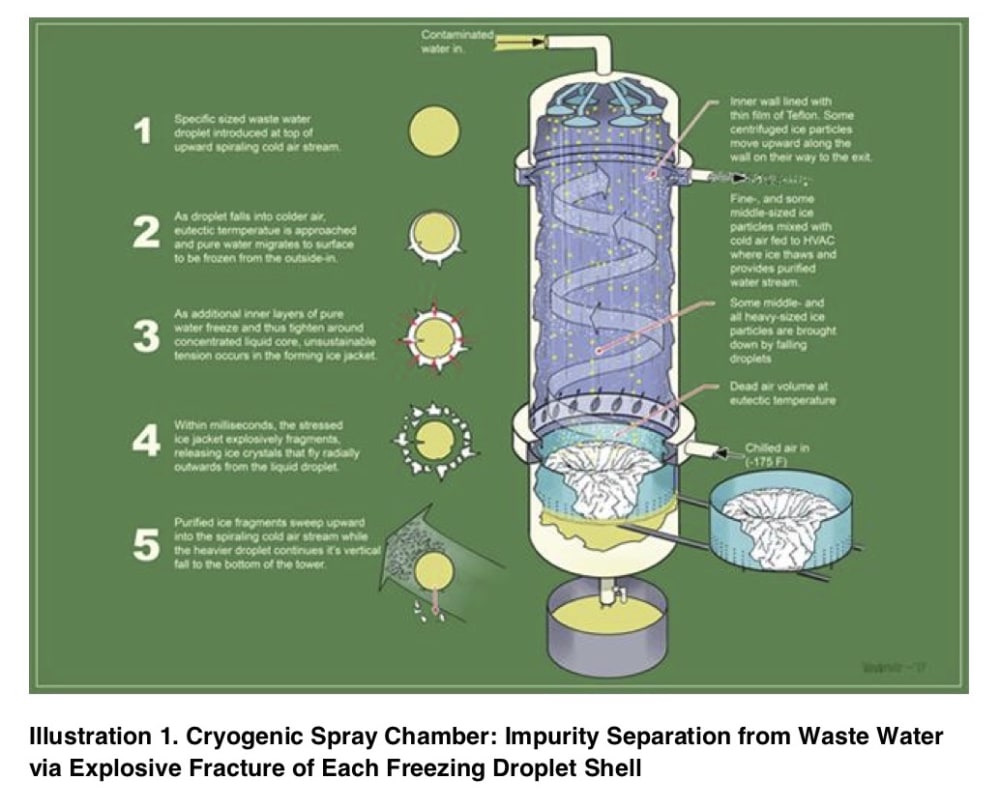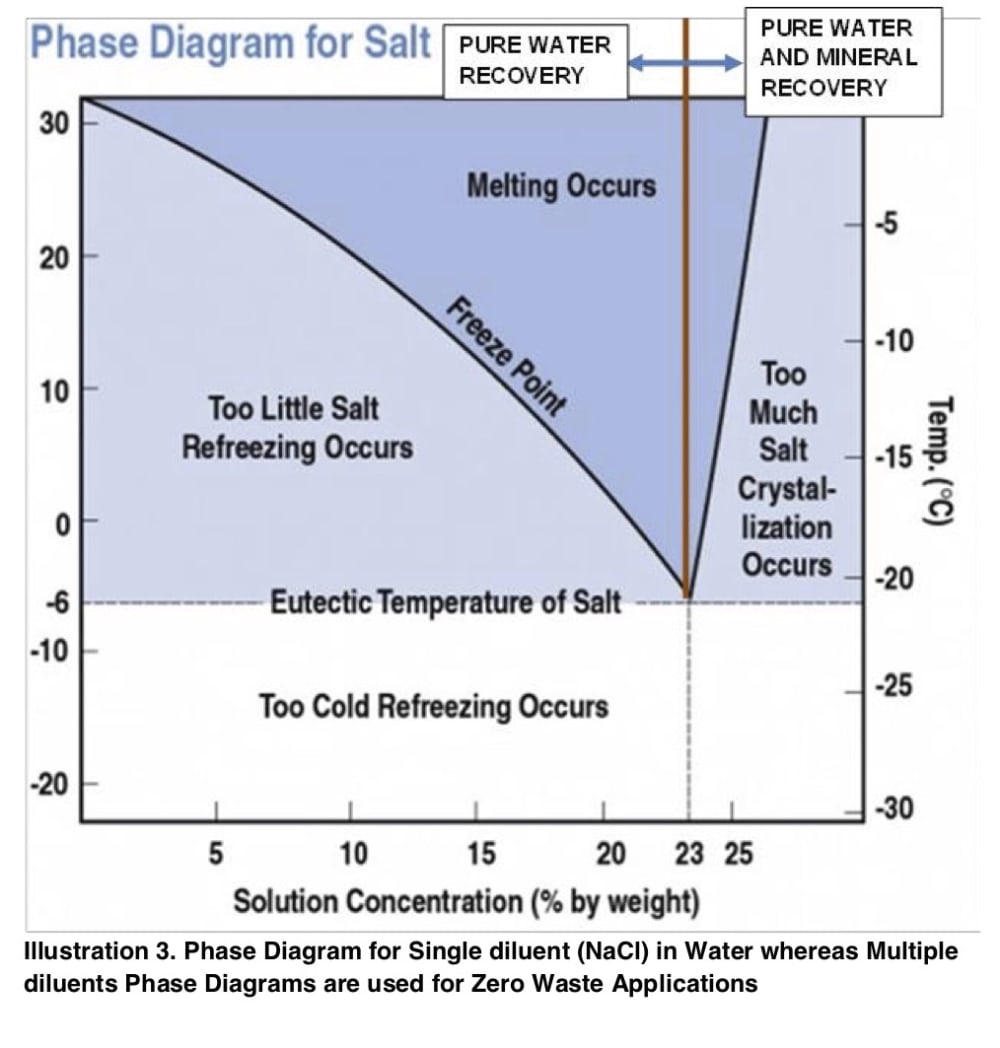A spray of spherical wastewater droplets into an extremely cold gas causes an ice shell to form and grow thicker and thicker as it falls downward in the spray chamber. During the formation of the fresh water ice shell structural cage any impurity is forced from the forming ice shell into the interior of the liquid droplet that has not yet frozen. This rejection of impurities is driven by powerful molecular forces so that the ice shell is completely free of impurities and the interior spherical core is loaded with additional impurities. The interior surface of the thickening ice shell presses on the external surface of the incompressible liquid and creates an increasing tensile stress in the ice shell. A stress level is reached wherein the brittle spherical ice shell fractures explosively into two hemispherical shells. The shells are completely free of impurities.
The chamber is designed to preserve the purity of the shells by taking advantage of the aerodynamic shapes, relative density and sizes of the pure fresh water ice shells and the remaining liquid spheres. In the chamber, the remaining liquid spheres are expected to freeze further in flight to the bottom of the spray chamber:
Illustration1 shows the process in a series of steps. The cold gases need to be extremely cold to inject large diameter droplets to permit large intake waste water flows and to reduce the time for phase transition.
Illustration 2 shows that eutectic freeze crystallization (EFC) covers a wide range of concentrations, including those not covered by Reverse Osmosis (RO). Furthermore, EFC is not restricted by issues associated with the limitations of a membrane material. However, combination of EFC and RO results in advantages that each supply.
Illustration 3 shows how the phase diagram for NaCl salt in water is used to recover fresh water when the input concentration is less than 23% and to recover fresh water AND salt when the input concentration is more than 23%. For waste waters with multiple diluents with different eutectic temperatures and eutectic concentrations, a stage process is used to crystallize each impurity for collection and sale. Ultimately, zero waste becomes available.
Like this entry?
-
About the Entrant
- Name:Paul Lieberman
- Type of entry:teamTeam members:Dr. Ben Enis, Dr. Paul Lieberman, Ivan Mihaljevich
- Software used for this entry:NO
- Patent status:pending








